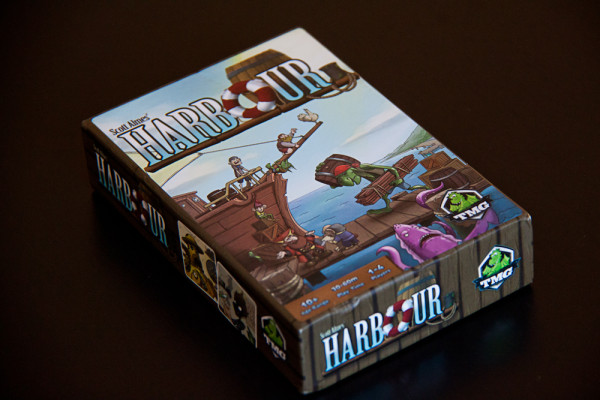
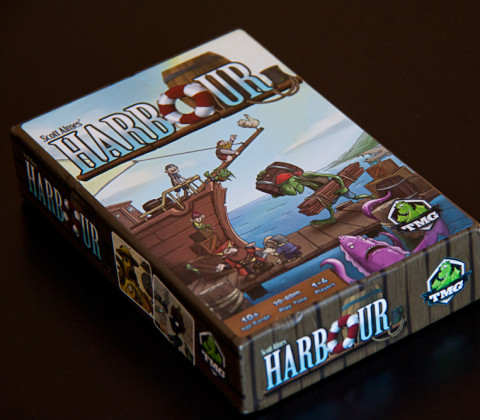
Harbour review: a silly serious brain burner
This particular generic fantasy harbour is filled with activity – giants loading huge crates of livestock onto ghost ships, enormous octopus chefs offering their clients delicious sushi, copper automatons whirring into motion to turn oaks into lumber. The air is alive with the calls of seagulls and the salty sea mist. If you pay close attention though – you can sense another smell – a smoky one. That would be brains burning as players strive to predict which goods will be in demand so that they can stockpile and sell it, staking their claim to victory. Want a tight, tense game that makes you think several turns ahead? Welcome to Harbour.
How it works:
The players are competing entrepreneurs in a fantasy harbour, trying to sell goods on a constantly fluctuating market. Selling provides money, allowing players to purchase buildings. These buildings are worth victory points and once one of the players purchases four, there is a final turn and the game wraps up – whoever collected most victory points is crowned the winner and is given a key to the harbour by a giant sentient kraken that lives offshore.
Each player has a single worker that they assign to an unoccupied building each turn. The buildings, represented by regular-sized cards, each have unique effects – either providing resources or manipulating the market. Each character card has a kind of a slider on the bottom – placing resource markers on different positions denotes how much of a given resources you currently have. Those familiar with Scott Almes’ previous Tiny Epic series will recognize the system right away.
The market card shows the current values of each of the game’s four goods (a rather unexciting set of cattle, fish, wood and stone). The higher the value – the more of a good you need before you can ship it. Once a player feels goods are ready to ship – a worker is assigned to a “ship and build” action, all resources shipped are discarded and a building can be purchased, as long as its cost can be covered by the price of shipped goods.
Following this, the market is adjusted – all goods just shipped become cheaper, while goods that were not shipped increase in price. A purchased building is still available for visiting (though a payment to the owner is now necessary) and a new “neutral” building is added from the deck.
How it plays:
The game works for one to four players and is prone to moderate to heavy analysis paralysis, which can come as a bit of a surprise, given the game’s compact format and lighthearted theme. Most of the analysis comes down to predicting the future state of the market, so that you can maximize the efficiency of your own selling (having an excess of a good does not help you – if you have five fish and you sell it – even though you only needed three – the rest is gone as well).
The fact that decisions that has to be made on each player’s turn are bite-sized (only one worker assignment) help mitigate the over-analysis problem to some extent, but it is still there. Even though the game can be reasonably interactive – it is wise to spot and thwart your opponent’s plans – this interactivity is very passive and playing Harbour is not a very social experience.
Two player games fit within 30-40 minutes, with higher player counts going up to an hour. The game feels quite different depending on the group size. Two-player format seems to be the best fit – focusing on one opponent makes for the most meaningful competition. In three and four player games, the planning becomes significantly more difficult – turning this game into either a gong show where people resign concrete planning and just go with the flow; or a total brain burner where you try your best to understand how much wood is going to cost three turns from now. There is also a solo version where you play against a hapless training dummy, but it really lacks the tense competitive feel of playing against a person. The dummy does not offer much of a challenge at all, however it is a good mode to learn the game for the first time.
How it feels:
Harbour leaves you with a strange, conflicted feeling. On one hand – it is a very smart little game with meaningful decisions and ability to interact with others by anticipating and foiling their plans. On another – there is a decided lack of excitement. The effects of many buildings seem equivalent and the abundance of “take any resource” effects leads to a kind of a complacency. Where in Lords of Waterdeep blocking access to a desired kind of adventurer is a major strategy – you would not do well trying this in Harbour. Given that getting what you want is always possible – it comes down to eking out an advantage in how you get it. Finding small benefits of doing things a certain way is rewarding, but certainly not exciting.
Somehow, despite a seeming variety in available buildings, all of them end up feeling very much the same. The same cannot be said for the rich selection of character roles that come with the game – the special abilities and difference in “default” action that they offer are interesting and offer a rich potential for replayability.
Amidst all this serious thinking that you are going to be doing, the cheerful silly art on the cards will help lighten the mood somewhat. The humour in these is very good and is a definite strong point of the game.
Conclusion:
Harbour is a good game – very compact, appealing in presentation, tightly designed, offers interesting choices and balance. Yet somehow, amidst all of these – the fun is not there. If your taste in games lies with the smarter offerings, geared towards planning and optimization – you will enjoy Harbour. If, however, you seek excitement and chance – you should probably cast your anchor elsewhere.

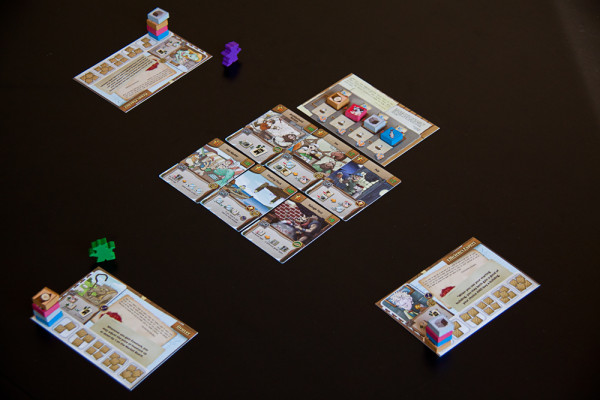
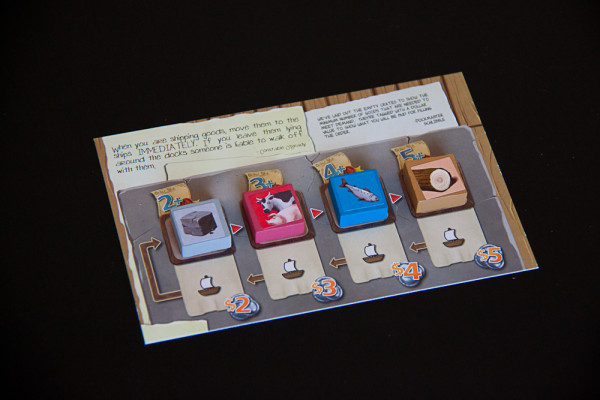
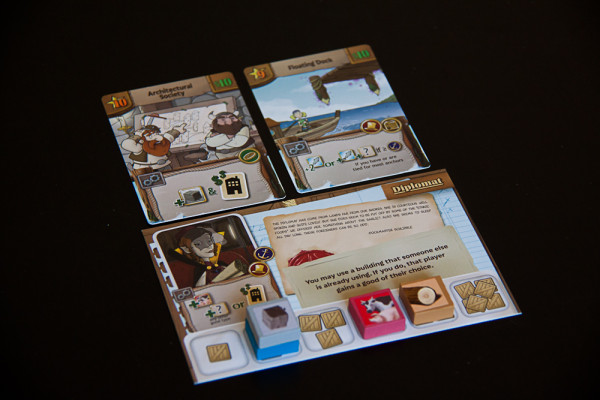
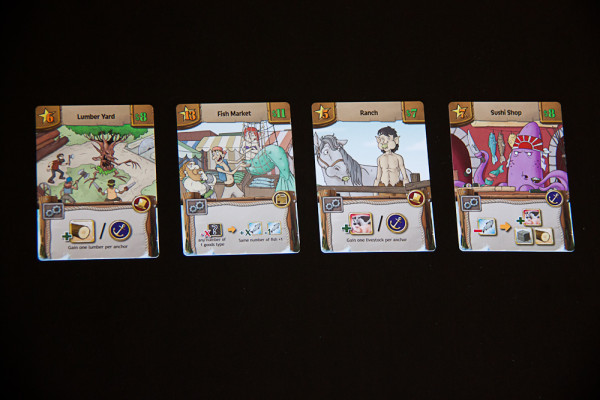
[…] Check out my review of Harbour here. […]